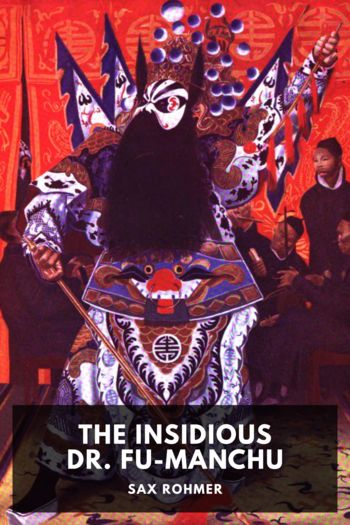Deep Water by Patricia Highsmith (romance novel chinese novels .txt) 📗

- Author: Patricia Highsmith
Book online «Deep Water by Patricia Highsmith (romance novel chinese novels .txt) 📗». Author Patricia Highsmith
"Shall I send the order off now?" Stephen asked.
"May as well. They took an age the last time." Vic returned to his desk, where he was writing letters of rejection to three poets and one novelist who had sent him manuscripts in the previous month. Vic always wrote his rejection letters himself, and by hand, because he hated writing them and would not have wished the task on Stephen and because he considered a courteous, handwritten letter from the publisher himself the only civilized way of communicating to the people whose work he had to reject. Most of the manuscripts he received were good. Some were very good, and he would have liked to publish those, but he could not publish everything he liked, and to the authors of manuscripts he considered very good he gave thoughtful advice as to where they might send them next. Most of his letters went something like: "... As you probably know, the Greenspur Press is a small one. We have only two handpresses, and because of our slow methods of operation it is impossible for us to print more than four books per year at most …" His tone was modest, in keeping with the spirit of the Greenspur Press, but Vic was exceedingly proud of his slow methods, proud of the fact that it usually took the Greenspur Press five days to set ten pages.
Vic was especially proud of Stephen Hines and grateful to Providence that he had found him. Stephen was thirty-two, a married man with one small child. He was a quiet fellow, even-tempered and endlessly patient with all the corrections and adjustments that printing entailed. He was as meticulous as Vic, and Vic never thought, in his first difficult two years, that anyone as painstaking as himself would ever come along. But Stephen presented himself one day, six years ago, and had asked him for a job. Stephen had been working for a small commercial printing firm in Brooklyn. He wanted to live in the country, he said. He thought he would like working for the Greenspur Press. Vic put him on at union wages at first, but after two weeks gave him a twenty per cent raise. Stephen had not wanted to take it. He loved the plant, loved the green, mountainous countryside—he was from Arizona, And his father's farm had blown away in a dust storm, he said—and at that time he had not been married. Five years ago he brought his girl Georgianne up from New York, and they were married, with Vic standing as best man. Georgianne was the right girl for him, quiet, modest, and as in love with the country as Stephen. They bought the guest house of a large estate between Little Wesley and Wesley, a house set deep in the woods on a road that Stephen had to clear with his own hands to make wide enough for a car. Vic had helped them finance the house, and now Stephen had paid back three-quarters of it. He was devoted to Vic, though lie never made a display of his devotion. It showed mostly in his attitude of respect toward Vic. He had called Vic "sir" until Vic, after a couple of months, made a joking remark about it. Now Vic was not quite "Mr. Van Allen" or "Vic," and Stephen called him nothing, to his face.
The other member of the Greenspur Press staff was old Carlyle, a small, stooped man of about sixty whom Vic had rescued from dereliction on the streets of Wesley. Carlyle had been begging, begging a quarter for a drink. Vic had bought him the drink and started talking to him. Vic had offered him a job as handyman and floor-sweeper in his plant, and Carlyle had accepted. Now his drinking was confined to two times per year—at Christmas and on his birthday. He had no family. Vic paid him enough to live comfortably in a room that he rented from an elderly woman whose house was on the north side of Little Wesley. Carlyle's tasks, in the four years he had been with Vic, had been enlarged to include mail sorting, press greasing, helping Stephen to lock up the chases, and carrying and fetching packages to and from the railroad station in Wesley. He had become a more or less reliable driver of the lightweight Dodge truck that stood always at the back entrance of the plant. It was debatable if Carlyle earned his $60 a week salary, but the Greenspur Press did not financially earn its keep, either, Vic reasoned, and he felt that he was contributing a great deal toward making the last years of Carlyle's life happy by employing him when nobody else would. So long as the worst Carlyle did was run the Dodge off the edge of the culvert bridge at the end of the lane, get drunk twice a year, and chew tobacco—Carlyle was an inveterate tobacco chewer and maintained a spittoon in the corner of the printing room which he emptied reasonably often—he could stay on until he died of old age.
The plant itself was a one-story structure painted dark green so that it was almost camouflaged among the dense, overhanging trees that grew all around it. It had a weird shape, having originally been a smallish barn of the kind used to store tools. This room was now the room that held the presses and





Comments (0)